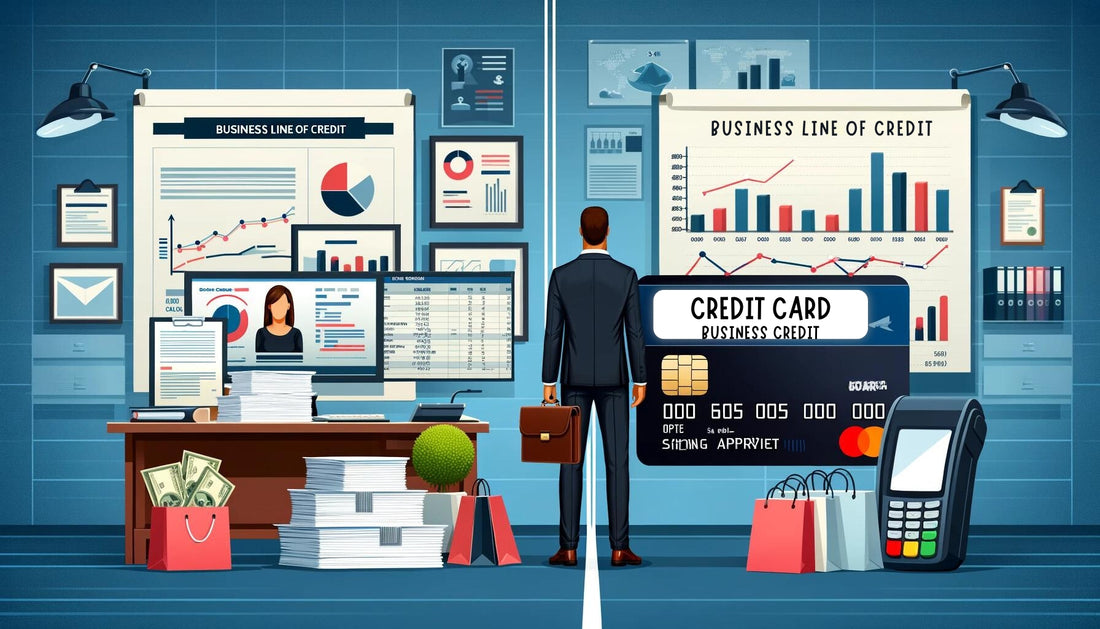When it comes to managing business finances, choosing between a business line of credit and a credit card can be crucial. Both options offer unique advantages and challenges, making it essential for business owners to understand their differences. This article delves into the nuances of business lines of credit and credit cards, helping you make an informed decision based on your financial needs.
List of 10 Related Terms
- Revolving Credit
- Credit Limit
- Interest Rates
- Repayment Terms
- Cash Flow Management
- Credit Score Impact
- Funding Flexibility
- Transaction Fees
- Borrowing Power
- Financial Strategy
Types of Business Line of Credit vs. Credit Card
- Secured Line of Credit: Requires collateral but offers lower interest rates.
- Unsecured Line of Credit: No collateral needed, higher interest rates.
- Business Credit Card: Ideal for daily business expenses and rewards programs.
- Charge Card: Requires full payment each billing cycle, no preset spending limit.
Sources
- Banks: Traditional source with extensive documentation requirements.
- Credit Unions: Often provide better rates and personalized service.
- Online Lenders: Fast approval processes with flexible requirements.
- Credit Card Issuers: Major financial institutions offering various business credit card options.
Processes and Procedures
- Application: Gather financial documents, business plans, and credit history.
- Approval: Banks and lenders assess creditworthiness and business viability.
- Draw Funds: For lines of credit, draw funds as needed; for credit cards, use for purchases.
- Repayment: Lines of credit offer flexible repayments; credit cards require monthly payments.
Benefits
- Flexibility: Access funds as needed with a line of credit; use credit cards for specific transactions.
- Interest Rates: Lines of credit often have lower interest rates compared to credit cards.
- Rewards: Business credit cards can offer cashback, travel points, and other rewards.
- Credit Building: Proper management of both can improve business credit scores.
Challenges and Considerations
- Interest Costs: High interest rates on unpaid credit card balances.
- Fees: Annual fees, transaction fees, and penalties for both options.
- Collateral: Secured lines of credit require collateral, posing a risk to business assets.
- Credit Impact: Mismanagement can negatively affect credit scores and future financing options.
Specific Scenarios
- Seasonal Businesses: Lines of credit help manage cash flow during off-seasons.
- Startup Expenses: Credit cards are convenient for initial small purchases and building credit.
- Large Purchases: Lines of credit are better for significant, one-time investments.
- Operational Costs: Use credit cards for recurring operational expenses and benefit from rewards.
Industry-Specific Use Cases
- Retail: Lines of credit for inventory purchases; credit cards for point-of-sale transactions.
- Service Industry: Credit cards for travel and client entertainment; lines of credit for expanding services.
- Manufacturing: Lines of credit for machinery and raw materials; credit cards for small supplies.
Actionable Advice
- Evaluate Needs: Assess your business's financial needs and usage patterns.
- Compare Options: Analyze interest rates, fees, and terms from different lenders.
- Manage Wisely: Use credit responsibly to build credit scores and avoid debt traps.
- Seek Advice: Consult financial advisors to tailor the best solution for your business.
Long-Tail Keywords for SEO
- Business line of credit vs. business credit card benefits
- How to choose between business credit card and line of credit
- Best business line of credit for small businesses
- Top business credit cards with rewards
- Secured vs. unsecured business lines of credit
- Impact of business credit cards on credit score
- Flexible funding options for small businesses
- Managing cash flow with a business line of credit
- Business credit card vs. line of credit for startups
- Pros and cons of business lines of credit
Conclusion
Choosing between a business line of credit and a credit card depends on your specific financial needs, business model, and future plans. Understanding the differences, benefits, and challenges of each option will empower you to make the best decision for your business’s growth and stability.
Funding Club
If your business generates $100,000 in revenue and you’re seeking $150k to $250k in funding, Funding Club can help. Our simple 4-7 minute application process ensures a quick response, often within hours or the next morning. Apply now for fast funding and take your business to the next level.
